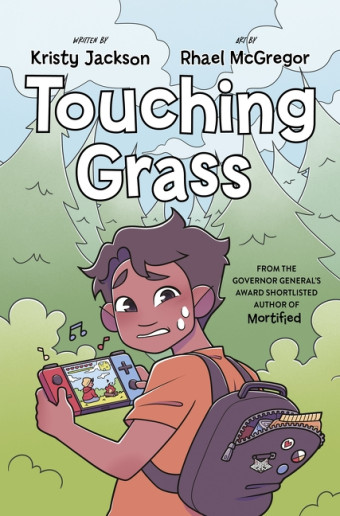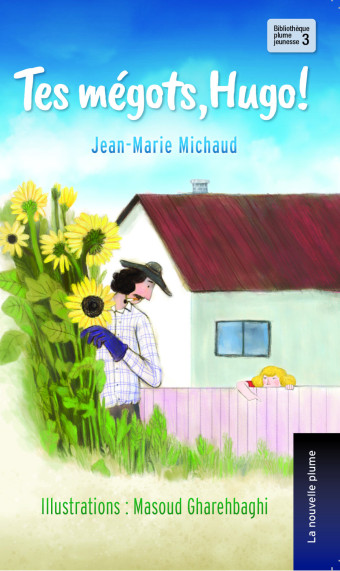Winnipeg-based author Jodi Carmichael is back with a new middle grade novel, The U-nique Lou Fox. Ten-year-old Lou lives with ADHD and dyslexia, and as a result, school does not come easily for her. Like many neurodivergent children, Lou often finds herself in hot water for drifting off task and losing focus in class, and this is very frustrating for her, to say the least.

- The U-nique Lou Fox
- Jodi Carmichael
- Pajama Press Inc.
- $23.95 hc, 240 pages
- ISBN: 978-12-77278-258-5
Carmichael’s inspiration for this novel came from her own experience as well as her family’s. She explains, “Lou is a combination of my own school experiences being undiagnosed with ADHD, anxiety, and dysgraphia, and those of several family members who have ADHD, dyslexia, or dyscalculia.”
Being surrounded by neurodivergent people in her life gave Carmichael plenty of knowledge and experience to work with, but Lou came to her while she was writing another story.
“She just started ‘chatting’ away, complaining to me about her exceedingly long name,” says Carmichael. “The lines she first uttered were ‘A 36-letter name is a curse for someone who can’t spell and finds reading next to impossible. Being dyslexic is no joke. Nor is the word dyslexic for someone who is.’” That 36-letter name is Louisa Elizabeth Fitzhenry-O’Shaughnessy, a doozy, which is why she prefers Lou Fox.
A scene where Lou receives the results of a spelling test followed, and “I knew I had a new compelling character who had an important story to tell.”
Carmichael’s muse for Lou was her mother. “She has ADHD, dyslexia, and dyscalculia,” she says. “When she was in third grade, back in 1948, she was kicked out of math class and told she couldn’t return until she could learn math.”
Outraged, the author’s grandmother pulled her daughter out of school and put her in a better suited learning environment at a private school. At age 50, Carmichael’s mother earned her master’s degree, thereby, as Carmichael says, “proving that a learning disorder doesn’t equal an inability to learn. It means there may be struggles – both large and small – along the way, but with proper support, great academic achievements can be made.”

In this novel, Lou’s parents provide the necessary support and have full confidence in her ability to thrive. They recognize that while Lou may struggle in areas such as reading and spelling, she has talents in the arts – she is working on writing a play and she is very skilled in drawing.
“I wanted to show that even though Lou has many struggles, she has strengths – incredible talents!” says Carmichael. “She is good enough – complete enough – just as she is. Self-acceptance leads to self-confidence, and it’s crucial as kids grow older.”
In addition to the importance of representation and ensuring that kids like Lou “take centre stage and see themselves reflected in literature,” Carmichael adds that all children have moments where they struggle in school, if not academically, then maybe socially or in sports. Or maybe their home life is stressful, making it hard to focus in class or make friends.
“I hope that by reading about Lou,” she says, “they connect with her journey of self-acceptance and they embrace all that they are.”












